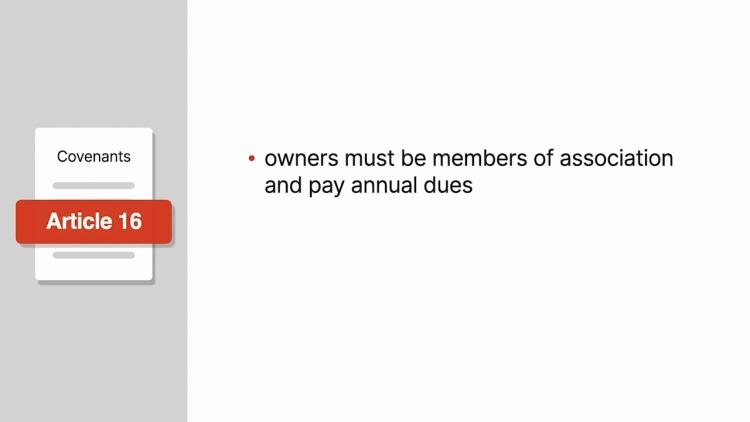Evergreen Highlands Ass'n v. West
Colorado Supreme Court
73 P.3d 1 (2003)

- Written by Sean Carroll, JD
Facts
Evergreen Highlands Association (Evergreen) (defendant) is a homeowners’ association in the Evergreen Highlands Subdivision. There are 63 lots and a park in the subdivision. The park, owned by Evergreen, contained hiking and equestrian trails, a barn and stables, ball field, a fishing pond, and tennis courts. There were protective covenants concerning the park, but Evergreen’s members were not required to pay fees or dues to Evergreen. The covenant contained a modification clause that allowed it to be waived, changed, or modified if approved by owners of 75% of the lots. In 1995, the covenant was properly amended to require all lot owners to be members of and to pay annual dues of $50 to Evergreen and to permit Evergreen to place liens on those properties whose owners failed to pay the dues. West (plaintiff), who had purchase his lot prior to the amendment, did not approve the amendment and refused to pay dues. Evergreen threatened to record a lien on West’s property, which prompted West to file suit challenging the validity of the amendment. The district court upheld the amendment but the court of appeals reversed, holding that the terms “change or modify” did not allow for the addition of an entirely new covenant because of the principle that any ambiguities in covenant language should be resolved in favor of free and unrestricted use of property. Evergreen appealed.
Rule of Law
Issue
Holding and Reasoning (Rice, J.)
What to do next…
Here's why 907,000 law students have relied on our case briefs:
- Written by law professors and practitioners, not other law students. 47,100 briefs, keyed to 996 casebooks. Top-notch customer support.
- The right amount of information, includes the facts, issues, rule of law, holding and reasoning, and any concurrences and dissents.
- Access in your classes, works on your mobile and tablet. Massive library of related video lessons and high quality multiple-choice questions.
- Easy to use, uniform format for every case brief. Written in plain English, not in legalese. Our briefs summarize and simplify; they don’t just repeat the court’s language.





